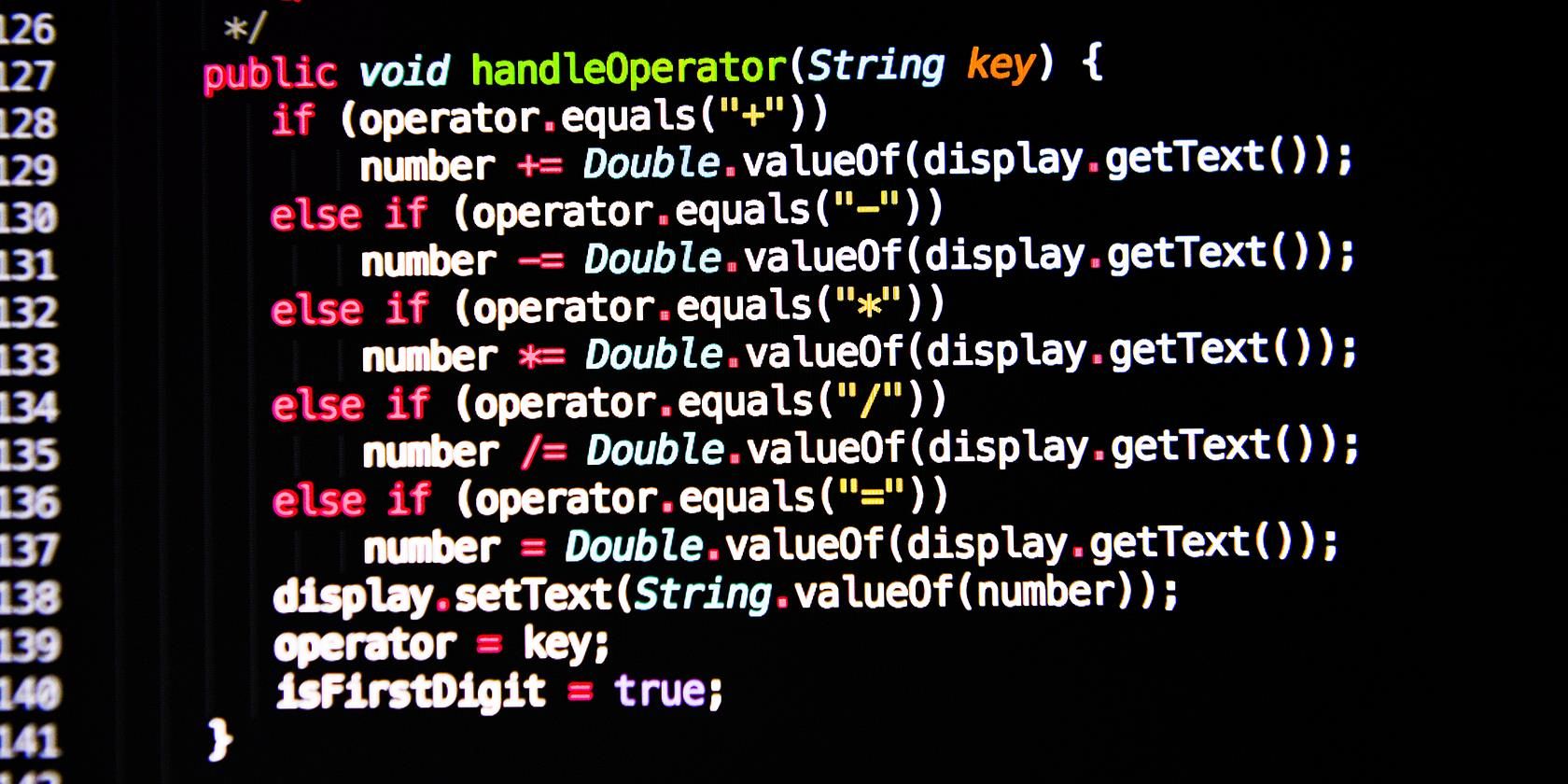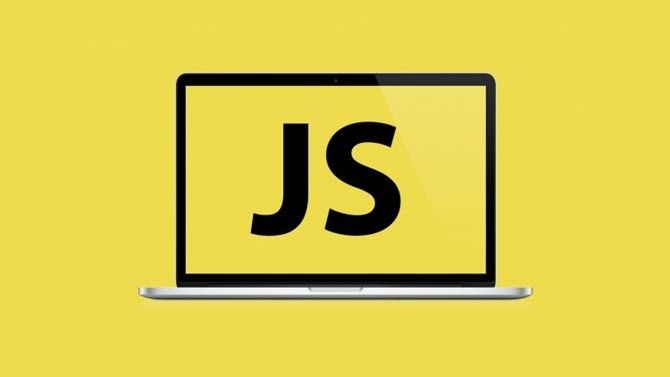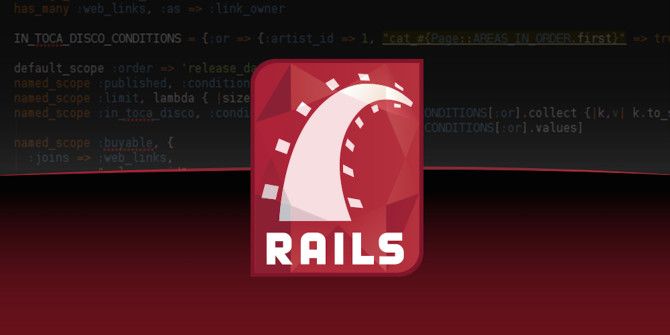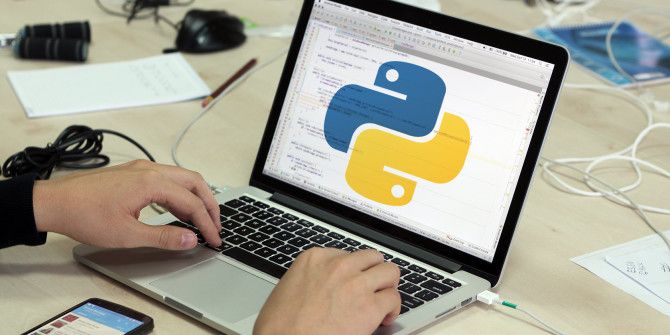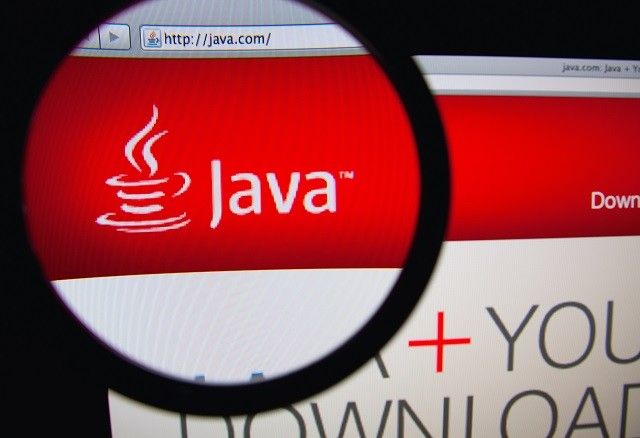Learning to program may seem like a daunting task. Luckily, it's not nearly as difficult as it seems. With a bevy of resources available both on and offline, dedicated communities, and experts to follow on social media, learning programming is much simpler than it used to be. And it's great for your mental health. Even kids can get started programming early on.
However, learning to program is about finding the right language just as much as it's about the edification process. In any case, here are the top six easiest programming languages for beginners.
A Word on "Easy"
What makes a programming language "easy" to learn for beginners varies. Some languages boast an intuitive syntax. While a language may be theoretically challenging, aspects such as a dedicated community can offset that difficulty. Therefore a slightly harder programming language may ultimately be easy for a beginner programmer owing to vast resources and expert knowledge.
JavaScript
Don't confuse JavaScript with Java. Whereas JavaScript is mainly a front-end development scripting language, Java is a programming language. JS (JavaScript) is incredibly prevalent since it is cross-platform. As JS runs natively in your browser, you don't even need a compiler. You simply need a notepad app or Sublime Text.
If you are eager to pursue front-end web development, JavaScript is an excellent starter. (We can help you make the right choice between front-end and back-end web development.)
JavaScript's syntax is similar to that of C, so learning JS sets you up to continue with your programming education. Further, for beginners, JavaScript is more relenting and dynamically-typed (untyped). Because of its wide applicability, JS is a solid starter language. It serves as a gateway to more complicated programming languages like C++.
Yet some such as Matthew Mombrea argue that JavaScript is in fact a poor starter. Mombrea argues that JS is a bad example of object-oriented programming, and moreover that it's already really well known. Furthermore, while JS is untyped, which may lead to greater efficiency while programming, errors won't be revealed until runtime. Thus, he claims, JavaScript is not the starting place if you want to make a career out of software development. But as an intro to the world of programming, it's a solid choice. JS requires only a notepad app and a bit of research. It's also instantly gratifying being cross-platform compatible. Read our introduction to JavaScript to learn how it works.
Uses
- Web development.
Pros
- Cross-platform compatible.
- No compiler.
- Gateway to other languages.
Cons
- Poor OOP example.
- Untyped.
- Difficult to debug.
Ruby on Rails
Ruby on Rails is easy to read, a huge plus for anyone sans-programming experience. A dynamic, object-oriented scripting language, Ruby is heavily used in web development. Websites including Groupon and GitHub employ Ruby code on their backend.
Learning Ruby is a little easier since you don't need to learn loads of commands. Since Ruby on Rails is a framework, it's essentially a collection of Ruby shortcuts. Take a look at most programming bootcamps, and it's likely that many of them teach Ruby on Rails.
The reason: it's perfect for beginners. Further, as One Month points out, there are many startups hiring Ruby on Rails developers, so even with entry-level experience you can likely land a gig.
Uses
- Web development.
Pros
- Heavily used.
- Collection of shortcuts.
- Good job market.
Cons
- Ruby on Rails is basically a set of shortcuts.
Python
Python is a great, easy programming language for beginners. Used in both web and desktop apps, Python offers many potential projects. The dynamic language supports OOP, procedural, and functional programming.
Additionally, it's an open-source language which means it's free to get started and there's a dedicated community. Need even more motivation? Joel Lee breaks down why Python is pretty useful.
Yet Python is a bit complicated as entry-level programming is concerned. For instance, maintaining a set naming convention and indention are important details. But considering its flexibility and the vast community, Python is an easy programming language for beginners.
Uses
- Web development.
- Application development.
Pros
- Used in desktop and web apps.
- Open-source.
Cons
- Requires specifics like a good naming convention.
Java
Oracle's Java remains one of the oldest programming languages. Java is fundamental to both web and desktop apps, operating systems, and more. This object-oriented, class-based programming language is widely utilized and moreover it's one of the most popular languages.
A January 5, 2016 article on Infoworld weighed in on the resurgence of Java as the one language to rule them all.
But in spite of its immense use and popularity, Java is slightly more challenging when juxtaposed with entry-level languages. Java derives much of its syntax from the likes of C and C++, so many programming schools and bootcamps start with C/C++ before moving to Java.
However Java forces programmers to think like, well, a programmer. You must consider how computers process information. By fostering a solid foundation of analytical programming knowledge, Java remains a fantastic, albeit slightly harder, programming language for beginners. Additionally, with a dedicated community and due to its lengthy tenure, it's likely that your Java questions have already been answered.
Uses
- Web development.
- Application development.
Pros
- Very popular.
- Long-standing language.
- Lots of resources.
- Challenge builds a steady programming foundation.
Cons
- Gets syntax from C/C++ so may be better to start there.
- Requires very analytical thinking .
C/C++
C and C++ are great introductory programming languages. Used for software development, C and C++ syntax have impacted many other languages. Therefore, learning C++/C lends a logical jump to the likes of Java, or more complicated languages. Plus, you can get going in C and C++ right now with a beginner project.
C++, unlike C, offers OOP elements including classes. If you're interested in game development C++ can be a good starter languages as it's oft-used in game and game engine development in addition to web, mobile, and desktop apps.
Both C and C++ provide a pleasant intro to not just programming, but computer science in general. Even if you concentrate on other programming languages, the fundamentals provided by C/C++ are invaluable.
C++ though may be initially challenging for first-timers. If you're able to overcome this difficulty, the rewards are plentiful.
Uses
- Application development.
Pros
- Excellent computer science background.
- Good for software and game development.
Cons
- C++ is slightly harder than C.
C#
C# is an awesome choice for beginners. There's a pretty simple startup time: merely download Visual Studio Express for a comprehensive install of all necessary elements such as SQL Express. C# may be used for a variety of purposes, from web development to console applications. Syntax is based on C, so like C++ and C, it offers a stellar computer science foundation.
However, Visual Studio does have auto-complete, and aspects like auto-generated project files, C# may be more complex. Unlike in languages such as C and Ruby, there are multiple compliers and interpreters. But the easy to use IDE along with wide-ranging use make C# a good pick for beginner programmers. If you need a little more convincing, read more about practical reasons to learn C#.
Uses
- Application development.
Pros
- Widely used.
- Visual Studio makes startup simple.
- Excellent comp sci understanding.
- Easy to use IDE.
Cons
- Complex compiler.
Final Thoughts on Intro Programming
Notably absent from this list is HTML. Why, you might ask, considering that HTML is super easy to learn and often taught even at a middle school level? In fact, HTML was the first language I learned, and within a matter of hours I progressed from novice to moderately competent. HTML is, as many of you might know, a markup language, not a programming language. So unfortunately, it doesn't quite fit the criteria.
Nevertheless, it's not a bad intro to languages, and is HTML widely applicable. Therefore, HTML earns an honorable mention as an easy language (not programming language) for beginners. HTML still reinforces the concepts of programming and is widely used and accessible in web development. From there, you can learn CSS (again, like HTML, not a true programming language), and eventually move on to full-fledged programming languages like JavaScript.
The best part about learning programming is that you don't have to stick with non-interactive tutorials---you can learn to code in collaboration with an expert coder or check out a code-along YouTube channel to practice while you learn.
Image Credit: kikujungboy via Shutterstock.com

